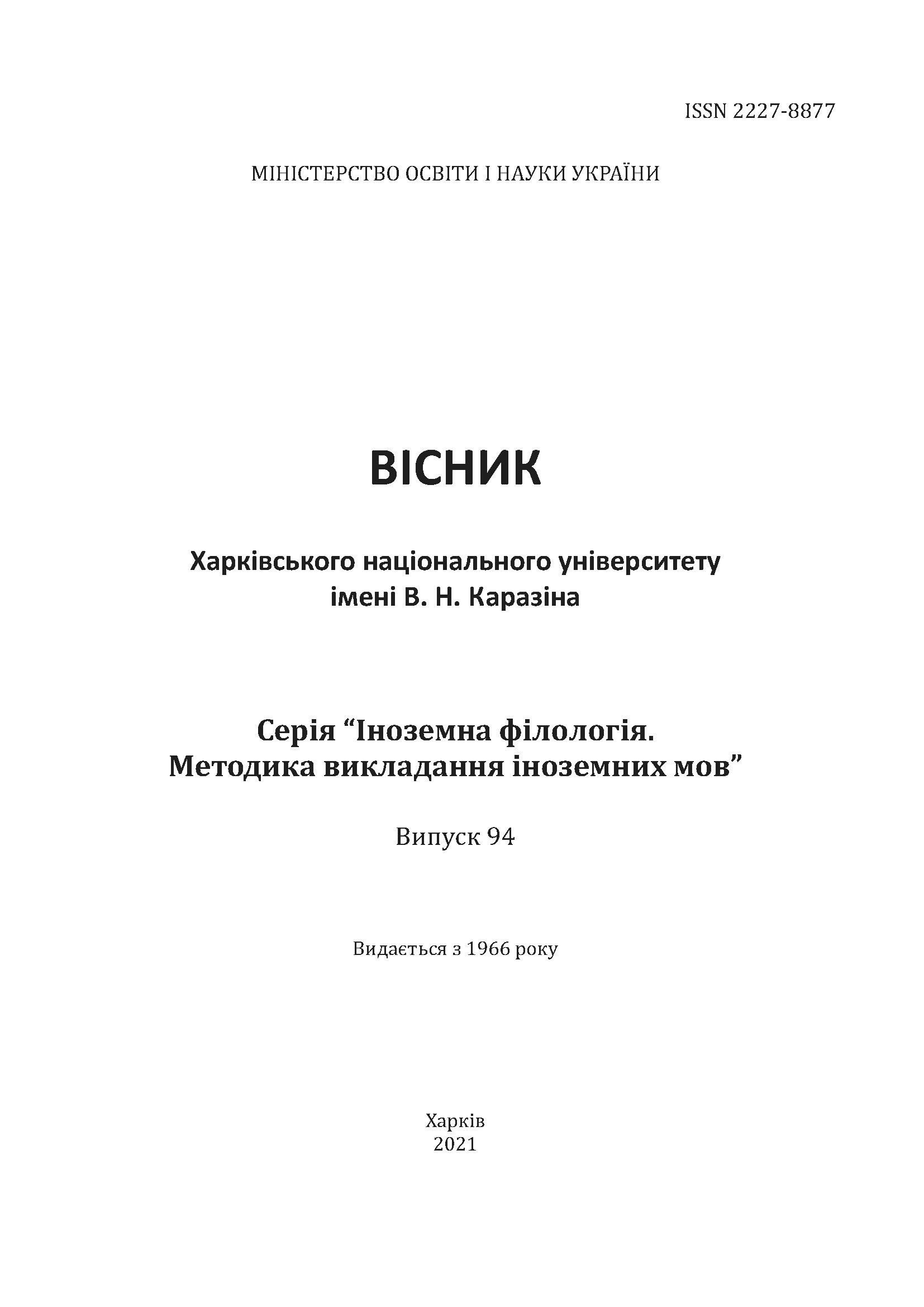Sensitising students to the existence of sociocultural peculiarities of expressing politeness in the foreign language lessons
Abstract
The paper considers possibilities of sensitising students to sociocultural peculiarities of expressing politeness in the foreign language lessons. According to the theory proposed by Penelope Brown and Stephen C. Levinson, politeness is based on the key human needs to maintain personal dignity and protect personal space. This allows us to talk about politeness as a universal category. However, universal ways of expressing politeness that are applicable to different cultures do not exist. In fact, comparative research shows that each culture has a specific set of verbal and nonverbal tools for expressing politeness. The results of this research proves that the category should be discussed in the foreign language lessons in the institutions of higher education. It is crucial that students understand that politeness is a complex system of nationally specific strategies that are aimed at harmonious communication without any conflicts. Therefore we have to draw students’ attention not only to grammatical means for expressing politeness in the native and foreign languages, but to demonstrate influence of linguocultural and sociocultural factors on realization of politeness during the cross-cultural communication. Furthermore, we have to show how differences in interpretation of means for expressing politeness by representatives of different cultures cause misunderstandings in communication. Tools for sensitising students to manifests of politeness categories in the cross-cultural communication are formulated. These tools are incorporated in corresponding exercises. The aim of the suggested exercises is not to introduce politeness rules of the cultures of the foreign languages that are learned by students, because these rules do not exist. The goal of these exercises is to sharpen students’ sensibility to the influence of sociocultural and linguocultural factors on expressing politeness in cross-cultural communication. The mere awareness of the fact that there constantly exists the possibility of occurrence of misunderstandings in cross-cultural communication which are related to differences in the interpretation of the models of polite behaviour in different cultures guarantees successful resolution of such situations by students in the future.
Downloads
References
Borysko, N. F. (2018). Problemy mizhkul‘turnoi pidhotovky majbutnikh uchyteliv i vykladachiv inozemnykh mov [Problems of cross-cultural training of preservice foreign language teachers]. Inozemni movy [Foreign Languages], 93(1), 9−20. https://doi.org/10.32589/im.v0i1.124861. (in Ukrainian)
Brown, P., & Levinson, S. (1987). Politeness. Some universals in language usage: Politeness Phenomena. Cambridge: Cambridge University Press.
Eismann, V. (2017). Erfolgreich in der interkulturellen Kommunikation. Trainingsmodul. Berlin: Cornelsen.
Holub, I. Yu. (2015). Adaptatsiia navchal’nykh materialiv dlia formuvannia sotsiokul’turnoi kompetentsii studentiv na zaniattiakh z inozemnoi movy [Adapting studying materials for developing sociocultural competence in students in foreign language classes]. Proc. of int. sci. conf. “Liudyna. Komp’iuter. Komunikatsiia”, Apr. 22–25. (pp. 221–225). L’viv: Natsional’nyj universytet “L’vivs’ka politekhnika.” (in Ukrainian)
Karaban, V. (2013). Vazhlyvist’ navchannia uzusu ridnoi ta inozemnoi mov u pidhotovtsi vykladachiv ta filolohiv inozemnykh mov [The importance of teaching the customary usage of the native and foreign languages in training translators and specialists in modern foreign languages]. Movni i kontseptual’ni kartyny svitu [Language and conceptual pictures of the world], 2, 24−31. Retrieved from http://nbuv.gov.ua/UJRN/Mikks_2013_2_6 (in Ukrainian)
Kotthoff, H. (2003). Aspekte der Höflichkeit im Vergleich der Kulturen. Retrieved from https://nbn-resolving.org/urn:nbn:de:0168-ssoar-9330
Liang, Y. (2013). Höflichkeit. In: P. Bogner (Hg.), Handbuch: interkulturelle Germanistik. (S. 244–53). Stuttgart: J.B. Metzler.
Lösche, H. (2009). Interkulturelle Kommunikation. Sammlung praktischer Spiele und Übungen. Augsburg: Ziel.
Lüsebrink, H.-J. (2016). Interkulturelle Kommunikation: Interaktion, Fremdwahrnehmung, Kulturtransfer. Stuttgart: J.B. Metzker-Verlag.
Malaia, O. Yu. (2008). Realizatsiia movlennievykh stratehij vvichlyvosti u dyskursi nimets’komovnykh forumiv (Dys. kand. filol. nauk). [Realization of Politeness Speech Strategies in German Internet-Forum Discourse (Philology PhD thesis)]. Kharkivs’kyj natsional’nyj universytet imeni V. N. Karazina, Kharkiv. (in Ukrainian)
Moisieieva, F. A. (2009). Pryntsyp vvichlyvosti u verbal’nij komunikatsii iak umova uspishnoho spilkuvannia [Politeness principle in verbal communication as a condition for successful communication]. Visnyk Donets’koho natsional’noho universytetu ekonomiky i torhivli im. M. Tuhan-Baranovs’koho. Seriia: Humanitarni nauky [Donetsk National University of Economics and Trade named after Mykhailo Tuhan-Baranovskyi], 2, 40−46. (in Ukrainian)
Poberezhnyk, N. O. (2012). Morfolohichni indykatory vvichlyvosti u nimets’kij movi [Morphological indicators of politeness in German using verbs and their categories]. Naukovyj visnyk Mizhnarodnoho humanitarnoho universytetu. Seriia: Filolohiia [International Humanitarian University Herald. Philology], 23, 101−103. (in Ukrainian)
Sitko, A. V. (2007). Osoblyvosti vidtvorennia etyketnykh form anhlomovnykh pytal’nykh rechen’ ukrains’koiu movoiu [Peculiarities of translating etiquette forms of English interrogative sentences into Ukrainian]. Problemy semantyky, prahmatyky ta kohnityvnoi linhvistyky [Problems of semantics, pragmatics and cognitive linguistics], 11, 296–302. (in Ukrainian)
Skrypnyk, Yu. D. (2006). Komunikatyvna katehoriia vvichlyvosti v korejs’kij movi. (Avtoref. Kandydatskoi dysertatsii) [The communicative category of politeness in Korean (Philology PhD thesis synopsis)]. Kyivs’kyj natsional’nyj un-t im. Tarasa Shevchenka, Kyiv. (in Ukrainian)




